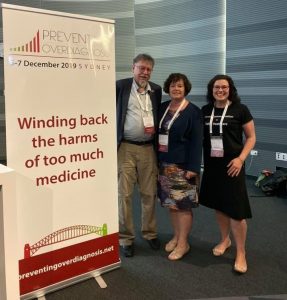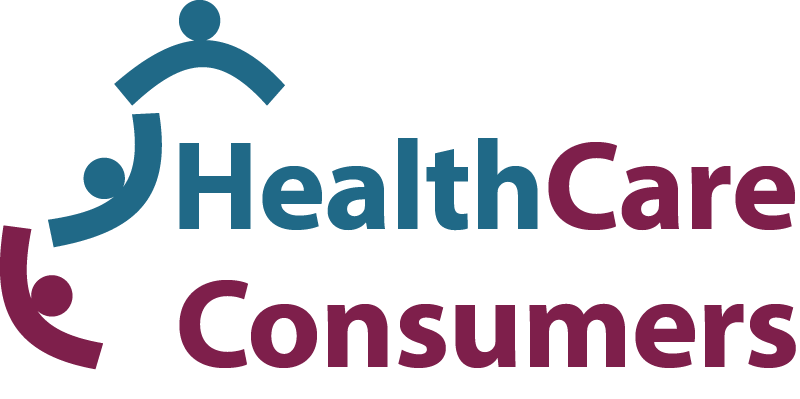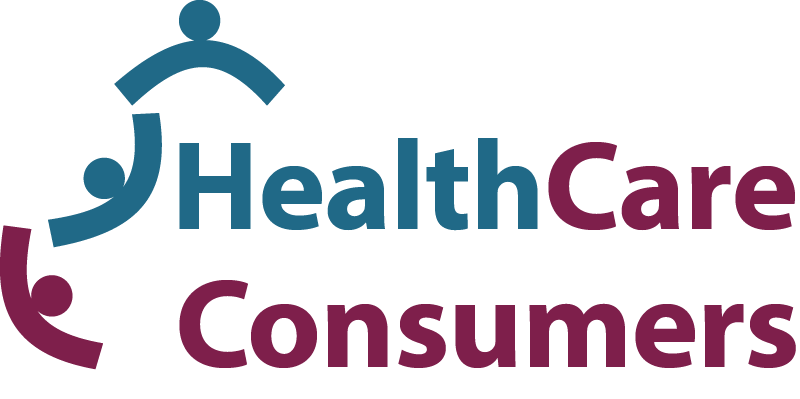Publications
Preventing Overdiagnosis Conference 2019 by Kathryn Briant
16 March 2020

This was an interesting and inspiring conference that was well worth attending. As an international conference, there were speakers from many different countries presenting on a wide range of topics relating to overdiagnosis. Overall I have been thinking about 3 main messages from health consumers that arose from the conference presentations:
We want our quality of life to be valued in health care
- A number of presentations looked at the overdiagnosis and overtreatment of prostate cancer and of thyroid cancer. These two types of cancers are too frequently treated with radical surgery, where a ‘watch and wait’ approach would be more appropriate.
- Serious impacts on quality life are occurring where the potential impacts, risks, safety, alternative treatments or overall prognosis may not be sufficiently discussed on diagnosis. It’s possible that many health care systems are both over-diagnosing and over-treating in these areas.
- Consumers want to have confidence that we are still being looked after by our health care professionals, even if the approach is to ‘watch and wait’ rather than heading down the route of surgery.
We want to feel empowered and able to ask questions
- Consumers face a power-imbalance in health care – we don’t always feel that we have permission to ask questions.
- Even where consumers do feel they have permission to ask questions, we also need to know the right questions to ask. A change in culture might include health professionals openly prompting consumers about what kinds of questions to ask!
- Some hospitals in Australia have started to include the ‘5 questions to ask your doctor’ handout in patient information packs – this would be great to see in the ACT.
- We heard about a great acronym for consumers to remember when asking questions about possible test or treatment – BRAN
- B – Benefit (ask your health professional about the benefits of the test or treatment)
- R – Risk (ask your health professional to explain the possible risks)
- A – Alternatives (ask you health professional to tell you about the alternatives, or what might happen if you delay or do nothing)
- N – ‘No Thank You’ (remember you can say no – if you don’t want to proceed with the test or treatment, or if you are not ready at this time)
We want to be able to make informed decisions based on trustworthy evidence
- Fiona Godlee presented on the British Medical Journal’s campaign against industry having a place in research, education and practice.
- It was really challenging to think about how medical research and objectivity can be compromised. Researchers conducting research with a financial interest in the outcome (eg. a new medicine) have a vested interest in focusing on the benefits over the risks.
- As consumers we need trustworthy evidence on which to make well-informed decisions about our healthcare – both at the individual level and also the broader society/public health level.

